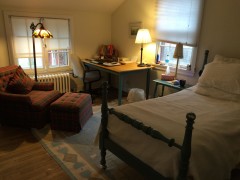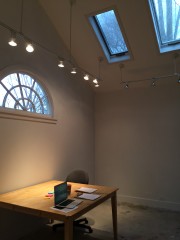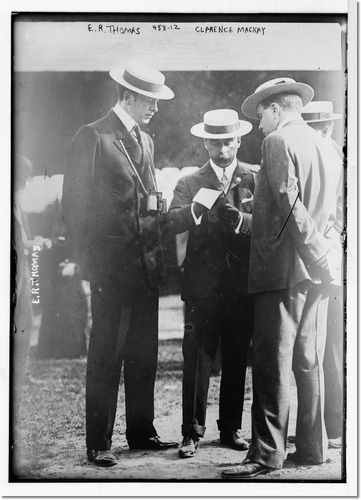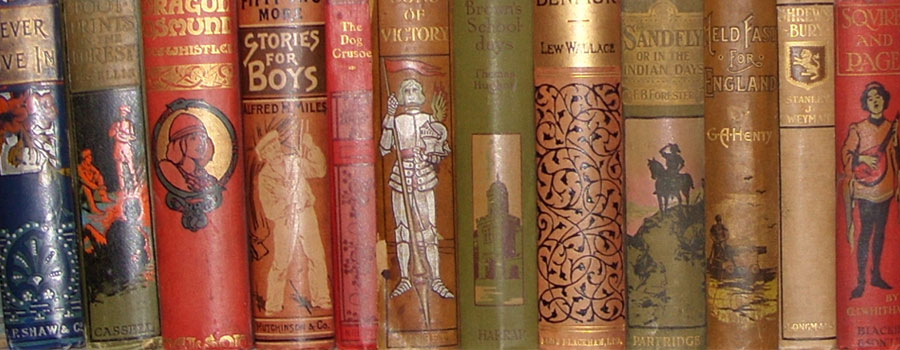1. It’s okay to be rude sometimes.
So far, what I like most about this residency is how anti-social you’re allowed to be. You can behave in ways that would be taken as rude under almost any other circumstance. Let’s say I leave my computer to walk into the kitchen to make a cup of tea and I’m still thinking about what I’m writing and I find that someone is already there. She’s absorbed in a book while she eats some cereal, doesn’t say hello how did you sleep are you have a good day how’s the writing going? She smiles and returns to her book. I can make myself a cup of tea and walk right out of that kitchen. Or I’m eating dinner with everyone at 6:30 PM, the only time of the day we all come together and eat a nice meal prepared by Chef Linda, served buffet style. It’s sort of like going to a dinner party every night, except you get to wear sweats and slippers if you want to. So, I’m at this dinner party in my slippers talking to the guy sitting across from me about, I dunno, the Lusitania or football or ice cream, and when he’s done eating, he stands up and says, “Back to work,” and I say bye and that’s that. No long goodbyes. No hard feelings. Everyone understands. If only real life could be this way!
2. My space.

This is a picture of my room at Ragdale, although I had to move the twin bed against the wall because I kept waking up terrified I was going to fall out.
How long has it been since I slept in a twin bed? College, I think.

And here’s a picture of the studio they gave me, too, so that I can storyboard my novel on the nice white walls.
3. Things I worry about even though I shouldn’t.
A great essay I read this week: “Children of the Century” in the New Republic. Alexander Chee asks the question, “Can a historical novel also function as serious literature?”
Jesus, I hope so.
When I tell people I’m writing a book about Linda Lee Thomas Porter, long-time wife of Cole Porter, I get one of two reactions: 1.) Oooh, I love books like that. 2.) Oh, I didn’t realize you were writing a book like that. Re: #2, by “like that,” they mean what we’ve come to think of as “the wife book,” the “woman behind the man book” like: Loving Frank by Nancy Horan, The Paris Wife by Paula McClain, etc. Why don’t the #2s think that I’m writing a book like The Women by T.C. Boyle, Ragtime by E.L. Doctorow, or Wolf Hall by Hilary Mantel? Is it because I am a woman writer or because I’m writing about a female character? Or both? The second set of books are also novels about real people and real events, what I like to call nonfictional fiction, but they were all written by men or have primarily male characters.
Sometimes, as I’m writing a scene or making a decision in my novel, I find myself thinking about how that decision will affect the way the book will be presented to the world–commercial or serious? genre or literary? “male” or “female”?–when what I need to do is just write the damn thing the best way I know how and let my agent (whom I trust) guide me. Every single day, I get anxious about this, especially now as I come closer to finishing, but then I tell myself its useless to borrow worry. Reading an essay like Chee’s reassured me that I’m not the only writer who worries about these matters. Note to self: keep working on my essays related to the subject of my novel and pitch them to The Atlantic and The New Republic; this definitely sends a message about how you want to be read.
4. Nonfictional fiction.

Most of the characters in my novel are based on real people: Linda, of course, and Edith Wharton, Emily Post, Bernard Berenson, Elsie de Wolfe, Bessie Marbury, Anne Morgan, the 5th Earl of Carnarvon.
Today, I’m working on a chapter in which Linda is being courted by Clarence Mackay.
The book that gave me permission to write my novel the way I want to write it is Ragtime by E.L. Doctorow. Which features real historical figures like Evelyn Nesbit Thaw, Harry K. Thaw, Emma Goldman, Harry Houdini, and J.P. Morgan, alongside purely fictional characters. There’s one scene in particular in which Gilded Age “It Girl” Nesbit goes to a socialist meeting where Emma Goldman is speaking and then ends up taking off her corset and allowing herself to be massaged by Goldman.
Now, this never happened. And once I reminded myself that I wasn’t writing a biography, that I could invent, the book started to flow.
5. “altgenres”
And speaking of genres and subgenres and labels, another great read from this week was this article from last month’s Atlantic, “How Netflix Reverse Engineered Hollywood.” Believe it or not, this article got me going on a essay about “selling” the English major, the humanities, and a liberal arts education. Stay tuned…

